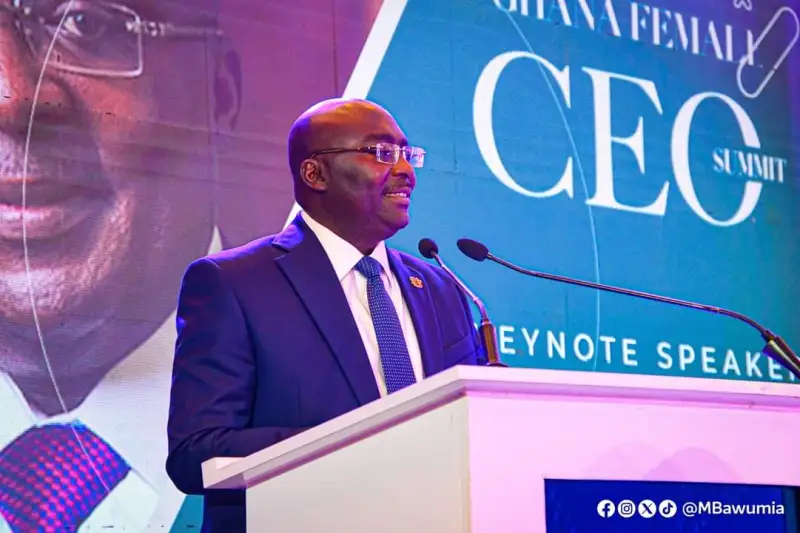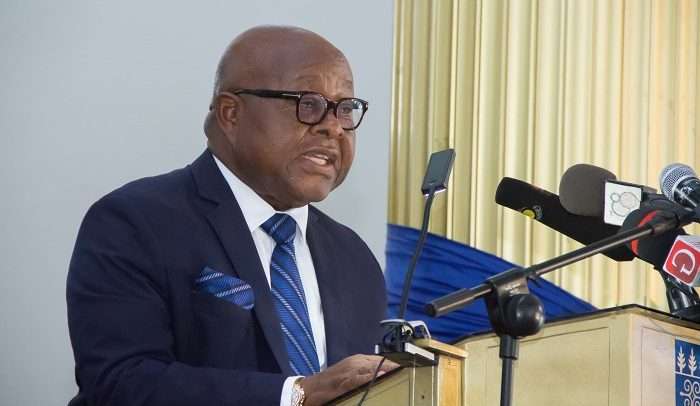Former Speaker of Parliament, Prof. Mike Oquaye, has asserted that the human rights Ghanaians enjoy today are largely due to the efforts of the New Patriotic Party (NPP).
This declaration was made during a mentorship programme organized by the NPP Council of Elders, coinciding with the 77th anniversary of the United Gold Coast Convention’s formation. Prof. Oquaye’s remarks have drawn attention to the historical contributions of various political factions in Ghana’s journey towards human rights and democratic governance.
Prof. Oquaye’s criticism of Dr. Kwame Nkrumah’s tenure is grounded in historical context. He argued that Nkrumah’s administration showed little regard for human rights, citing the Preventive Detention Act (PDA) of 1958 as a glaring example.
This law allowed for the detention of individuals for up to five years without trial, and in 1964, it was amended to permit renewals, effectively enabling indefinite detention.
“Under Nkrumah, you could be detained almost indefinitely. Our forebearers brought this kind of thing. Nobody likes that today, nevertheless, they see a hero in the man who perpetrated it against the people of Ghana.”
Prof. Mike Oquaye, Former Speaker of Parliament
In contrast, Prof. Oquaye highlighted the NPP’s pivotal role in establishing and preserving human rights in Ghana.
Prof. Oquaye emphasized the contributions of the late President Edward Akufo-Addo, who introduced a human rights chapter in the 1969 constitution.
This chapter, according to Prof. Oquaye has been a foundational element in subsequent constitutions, underscoring the importance of human rights in Ghana’s legal framework.
“Our people were developmental, selfless gentlemen, development-oriented and they spoke about it, all the time,” Prof. Oquaye stated, underscoring the NPP’s commitment to human rights and democratic principles.
NPP Flagbearer Dr. Mahamudu Bawumia’s Call to Action

Adding to Prof. Oquaye’s sentiments, NPP Flagbearer Dr. Mahamudu Bawumia urged party members to hold dear the tenets of the NPP’s tradition.
“As we navigate the future, it is essential to integrate history with current realities, upholding our party’s heritage involves more than honouring the past. It requires maintaining the values and principles that define our struggles for freedom.”
Dr. Mahamudu Bawumia, NPP Flagbearer
The mentorship programme organized by the NPP Council of Elders aims to educate young patriots on the Danquah-Busia-Dombo tradition. This initiative is seen as a strategic effort to nurture the next generation of leaders committed to the NPP’s cherished values of democracy, freedom, and economic development.
The public reaction to Prof. Oquaye’s statements has been mixed. Some Ghanaians agree with his assessment, acknowledging the NPP’s role in advancing human rights and democratic governance. They argued that the historical context provided by Prof. Oquaye sheds light on the struggles and achievements of the party’s forebearers.
However, others view his remarks as overly partisan, dismissing the complex legacy of Dr. Nkrumah. They argued that while Nkrumah’s administration had its flaws, it also laid the groundwork for Ghana’s independence and made significant strides in education, infrastructure, and national unity.
Prof. Oquaye’s comments highlighted the importance of historical context in political discourse. Understanding the past is crucial for making informed decisions about the future.
While the debate over Ghana’s human rights legacy continues, it is clear that both the NPP and Nkrumah’s administration have played significant roles in shaping the nation’s political landscape.
As Ghana continues to evolve, reflecting on its democratic journey is essential. Prof. Oquaye’s remarks serve as a reminder of the importance of human rights and the role of political parties in safeguarding these freedoms.
Whether one agrees with his assessment or not, the discussion sparked by his comments contributes to a deeper understanding of Ghana’s history and the ongoing struggle for a just and democratic society.
READ ALSO: Ghana’s Indigenous Seeds at Risk of Extinction Amidst GMO and Hybrid Seed Influx



















